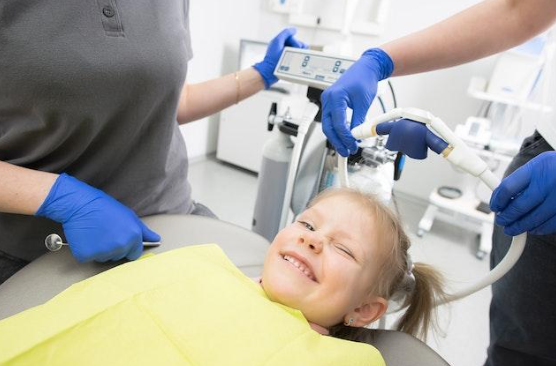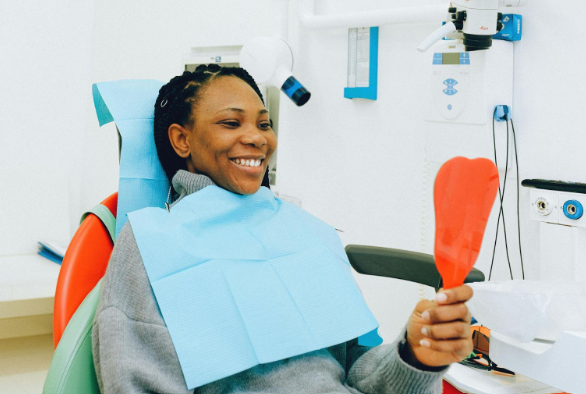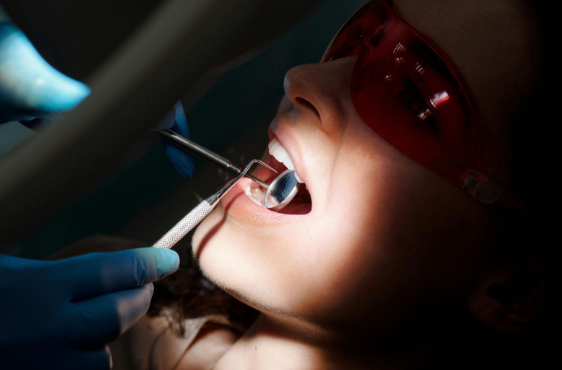Gateway Family Dental Blog
What Makes Children's Dental Care Special?

As parents, you want our children to have the best possible health and well-being. One aspect of their health that can often be overlooked is their dental care. Children's dental care is special in many ways, and it's important to understand why. Not only can proper dental care prevent future dental problems, but it can also impact a child's overall health and confidence. In this article, we'll explore what makes children's dental care special and why it's crucial to prioritize it.
Baby Teeth
Children have baby teeth or primary teeth that need special attention. Baby teeth are temporary teeth that eventually fall out and are replaced by permanent teeth. However, they are still important because they help children chew and speak properly and maintain space for the permanent teeth. Baby teeth are also more susceptible to decay than permanent teeth, and it is important to keep them healthy to avoid problems later on.
Developing Teeth and Jaws
Children's teeth and jaws are still developing, and they require special attention to ensure that they grow properly. Regular dental check-ups can help identify any problems early and prevent more serious issues from developing.
Dental Anxiety
Children may feel anxious or scared about going to the dentist. It is important for the dentist to create a comfortable and welcoming environment for children to help them feel at ease. Dentists who specialize in children's dental care have training in how to work with children and help them feel comfortable during their dental visits.
Preventative Care
Preventative care is important for children's dental health. This includes regular dental check-ups, cleanings, fluoride treatments, and sealants. These preventative measures can help keep children's teeth healthy and avoid more serious dental problems in the future.
Limits Infections
Good dental care can help limit infections in several ways. One of the most important ways is by preventing the buildup of plaque on teeth and gums. Plaque is a sticky film of bacteria that can build up on teeth and gums and cause gum disease and tooth decay. Regular brushing and flossing, as well as professional cleanings, can help remove plaque and prevent the development of infections. Additionally, good dental care can help identify any signs of infection early on, allowing for prompt treatment and prevention of more serious infections.
Tips for Better Dental Care
The points ahead explore some tips for better children's dental care, so that parents and caregivers can help set their children up for a lifetime of good oral health.
Focus on Nutrition and Oral Hygiene Habits
Good nutrition and oral hygiene habits are essential for maintaining healthy teeth and gums in children. A balanced diet that includes a variety of fruits, vegetables, lean proteins, and whole grains can help promote good oral health. Sugary and acidic foods and drinks should be limited, as they can contribute to tooth decay.
Parents and caregivers should also teach children how to brush and floss their teeth properly. Using a soft-bristled brush and fluoride toothpaste, children should brush for at least two minutes twice a day. Flossing should be done at least once a day to remove plaque and food particles from between teeth.
Collaborative Care with Pediatricians and Specialists
By working together with pediatricians and specialists, dentists can provide comprehensive care for children and ensure that their oral health needs are met. This collaborative approach can help identify any potential health problems early on and provide timely treatment, leading to better outcomes for children.
In addition, dental professionals can also collaborate with other healthcare providers to promote good nutrition and oral hygiene habits. This can involve working with nutritionists, speech therapists, and other healthcare providers to ensure that children receive the best possible care for their oral health.
Preventive Care
Preventive care can also involve early intervention when problems are identified. For example, orthodontic treatment can help correct misaligned teeth and prevent further dental problems down the road.
By prioritizing preventive care, dental professionals can help ensure that children maintain good oral health and avoid dental problems in the future. This can lead to better outcomes for children and reduce the need for more invasive and costly dental treatments in the future.
From preventing tooth decay to promoting healthy development, it's essential to prioritize your child's dental health through
effective cleaning. By partnering with a trusted dental provider like
Gateway Family Dentistry, you can ensure that your child receives the best possible care through
our services. Don't wait until it's too late;
contact us today to schedule an appointment and set your child on the path to a healthy, happy smile!




